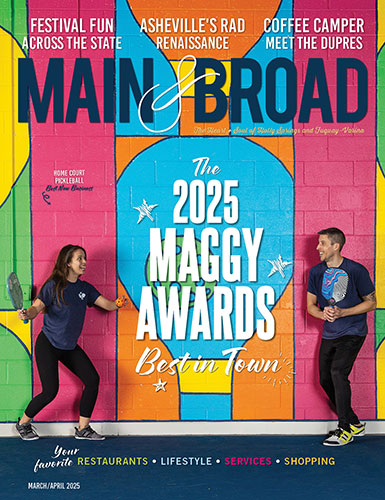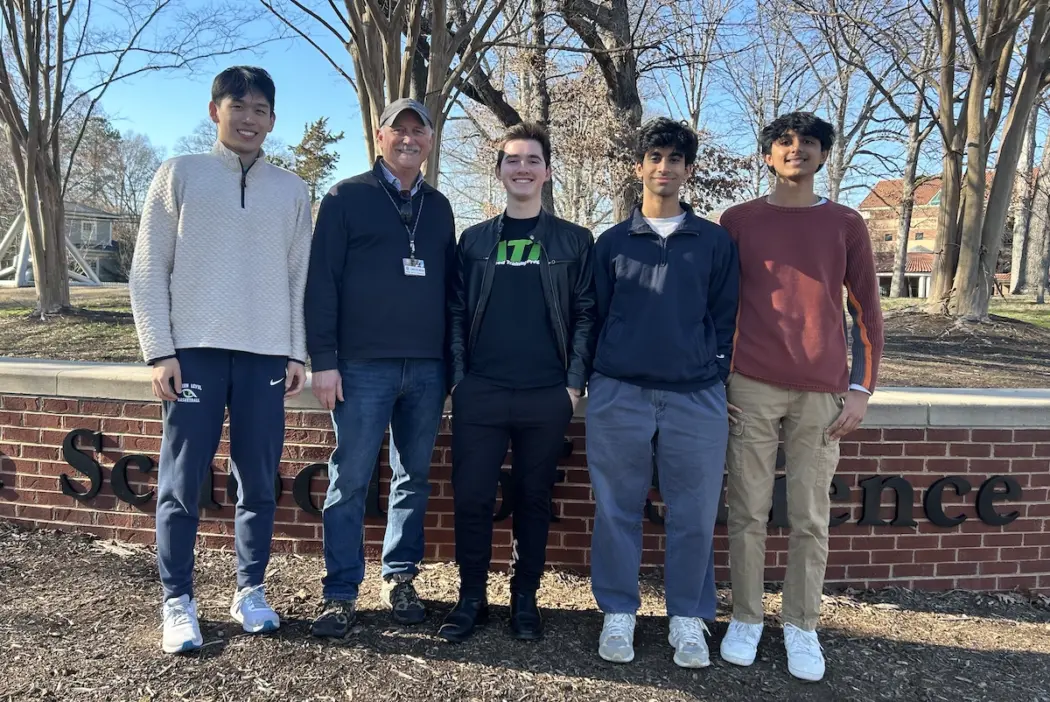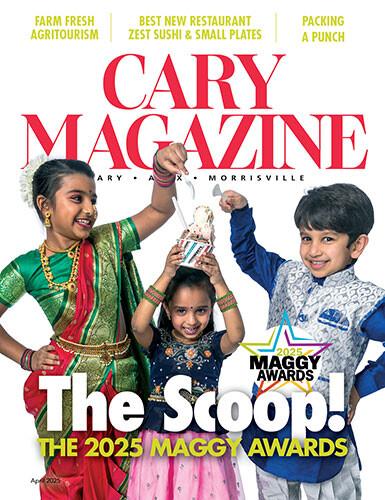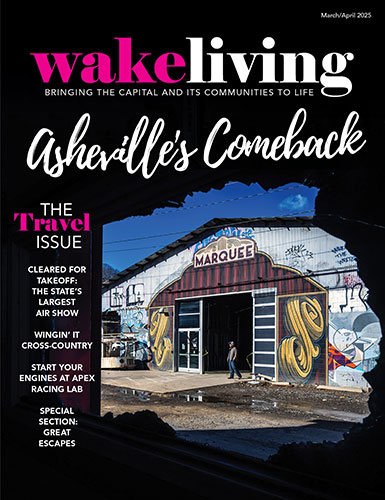During Earth Month, a group of students from the North Carolina School of Science and Mathematics in Durham won The Earth Prize, the world’s largest environmental sustainability competition for teenagers.
Inspired by the increased incidence of flooding in North Carolina, the FloodGate team created a flood prediction and warning technology to address the flooding that threatens 240 million people across the globe each year. Their interactive 3D flood model helps governments and individuals plan with advanced warning to reduce damages and increase efficiency of rescue operations.
Runners-up included team CocoMellow from Vietnam, who created banana-based diapers to fight single-use product waste; team Ceres from Türkiye, working to protect crops from climate events; and team Pebble from the UK, pooling computer power to reduce energy use. More than 10,000 students from 154 countries have competed in The Earth Prize in its first three years.
The FloodGate team consisted of George Cheng from Cary, Shubhan Bhattacharya from Apex, Sumedh Kotrannavar from Raleigh, and Reichen Schaller from Sanford. We caught up with the team members to learn more about who they are and where they’re headed.
Introduce yourselves!
George: Hey! My name is George Cheng, and I am an incoming freshman at MIT. Throughout my life, I have been fascinated with the intersection of AI/ML + health care, specifically targeting drug affordability. However, when I learned about the severity of floods in my hometown, I turned my attention to math modeling and subsequently FloodGate. Outside of academics, I enjoy eating out and hooping.
Reichen: My name is Reichen Schaller, and I am an incoming freshman at UNC-Chapel Hill. My focuses are mechanical engineering and its uses in building small-scale consumer electric vehicles, and physics and its practical applications in engineering. I hope to pursue a major in applied physics with the hope to join a team working for a greener, safer future.
Sumedh: Hi! My name is Sumedh Kotrannavar, and I am a senior at the North Carolina School of Science and Mathematics in Durham. It has been one of my goals to uplift the lives of those in my community through research and influencing local policy. In my free time, I love to play the viola and basketball.
Shubhan: Hi! My name is Shubhan Bhattacharya, and I am a senior at the North Carolina School of Science and Mathematics. My passion lies in leveraging technology and engineering to devise solutions for global health challenges. In the future I hope to pursue engineering with an emphasis on developing affordable technologies for communities around the world.
____________________________________________________________________________
How did you learn about The Earth Prize? Did you immediately know you wanted to participate?
George: I learned about The Earth Prize in the summer of 2022; when I first read about the registration and the competition, I was nervous for the challenge. However, the resources that The Earth Prize provided us from mentors to example templates, and the plethora of advice that The Earth Prize Ambassadors gave us made it not so much a daunting task. When I assembled my team, we delegated tasks, set achievable goals, and tackled each problem carefully. Throughout the process, we learned a lot about Earth’s biggest problems and grew interested in solving environmental science problems in the future.
____________________________________________________________________________
What inspired the idea to address flooding?
Shubhan: George and I first met at a Wolfram Summer Research Program, in which his final project was mapping river tributaries across different geographic elevations (https://community.wolfram.com/groups/-/m/t/2964526?p_p_auth=q18QYRVS). After the camp, we gathered the rest of the team to tackle flooding in light of the Delhi floods of 2023 and the impact that flooding has on our hometowns and our school.
____________________________________________________________________________
Describe the process of creating your flooding solution.
Reichen: As there was previous literature on cellular automata — and literature specifically targeting flooding — it was relatively easy to create our own weighted cellular automata model and test it in multiple areas. We are currently working on integrating AI/ML with our model and developing it into a web application that can be used by users around the world.
____________________________________________________________________________
How does FloodGate work, in layman’s terms?
Sumedh: FloodGate uses a weighted cellular automaton to mimic water flow in different elevations so that we can predict where the water will go in case of a large flooding event. Think about it like pouring water down a volcano; where the water will land is something we are trying to predict.
____________________________________________________________________________
What challenges did you face along the way?
George: Our main challenge is balancing schoolwork while continuing to make progress on the project. NCSSM has very rigorous coursework and a lot of our team members were also involved in numerous clubs and activities across campus. It was hard for us sometimes to come together for meetings and work on the program and application to The Earth Prize.
____________________________________________________________________________
Winning this international competition with many other brilliant entries is quite an impressive feat. What does the win mean to you?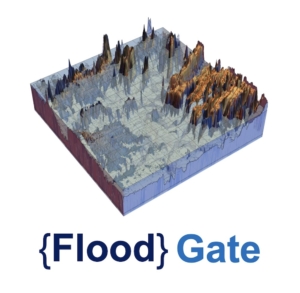
George: As you can see in the reaction video, we did not expect to win. As you mentioned, The Earth Prize has very tough competition from 900+ schools around the world. Winning The Earth Prize means connections with other brilliant environmental scientists, possible collaborations to further FloodGate, and advocates for life — all working together to tackle the climate crisis.
Reichen: For me, this win symbolizes how through effective collaboration and drive we can achieve real and lasting results. It also serves as an excellent springboard into the field of climate change and provides us a clear path to bettering the world.
Sumedh: We are honored to be recipients of The Earth Prize. It has served as a platform for us to improve our product by working with other professionals, while also allowing us to have once-in-a-lifetime opportunities such as attending the Villars Symposium in Switzerland. It has also reminded us of the large potential our app has, and we are empowered to continue to improve it and make a difference in the world.
Shubhan: Winning The Earth Prize competition was really an amazing moment for us. Since our win, we have been provided with incredible opportunities by The Earth Prize team, and it’s really been a gateway into pursuing further environmental work.
____________________________________________________________________________
What comes next for FloodGate?
Next we aim to have an alpha version of the software available to allow for effective and efficient testing and improvement of the system. Though this version would be heavily monitored, we would hope to deploy it in high-risk areas.
____________________________________________________________________________
What are your career plans/aspirations?
George: I plan to major in bioengineering and computer science with a minor in finance. I hope to be a serial entrepreneur targeting the health care industry through novel AI-based software.
Reichen: Though I don’t have a concrete goal yet, I hope to be able to design neural prostheses. I have always had an interest in interaction between our brains and our muscles and I aim to one day provide prostheses at least equal and hopefully superior to what we are born with.
Sumedh: I hope to major in neuroscience, possibly on the premedical path. I aspire to create a startup one day that addresses the interactions between substances and the brain.
Shubhan: In the future I hope to major in electrical engineering, potentially with a minor in public health. Using these skills, I hope to pursue research on developing reliable and affordable solutions to global health issues.
____________________________________________________________________________
What advice do you have for other teens who want to make a difference?
George: Just do it. A year ago, we were complete strangers that would casually see each other during lunch. An idea brought us together, a meeting brought out our strengths, and our video gave us access to a lifetime of resources. When you set your mind to do something, the end result is not what matters the most, but the journey in which you fail and learn from your mistakes. My advice: Never wish to make the difference; let the difference come naturally to you.
Reichen: Explore your passions. For me it took a simple interest in design and manufacturing to learn the skills required to market FloodGate so effectively. You don’t have to start something entirely new or force yourself to do something you despise. Take your interests and passions to the next level and use them to make a difference. Even if you don’t succeed the first time, if you are passionate about what you are doing, then it was fun nevertheless.
Sumedh: Don’t just pursue an initiative or passion for the sake of making a difference. Oftentimes it’ll be your fourth or fifth project that’ll eventually be successful. Some advice is to cherish the journey. Even if you fail, you’ll learn from these experiences and gain a vast array of skills that’ll allow you to be successful in the future.
Shubhan: Embrace curiosity and observe your surroundings. My path started with making simple observations of the problems our community faced. These observations fueled a curiosity within us to explore potential solutions. By embracing this curiosity, we were not only able to develop a solution but learn many different skills along the way. Impactful change truly starts with a willingness to look closely and think about your community.
